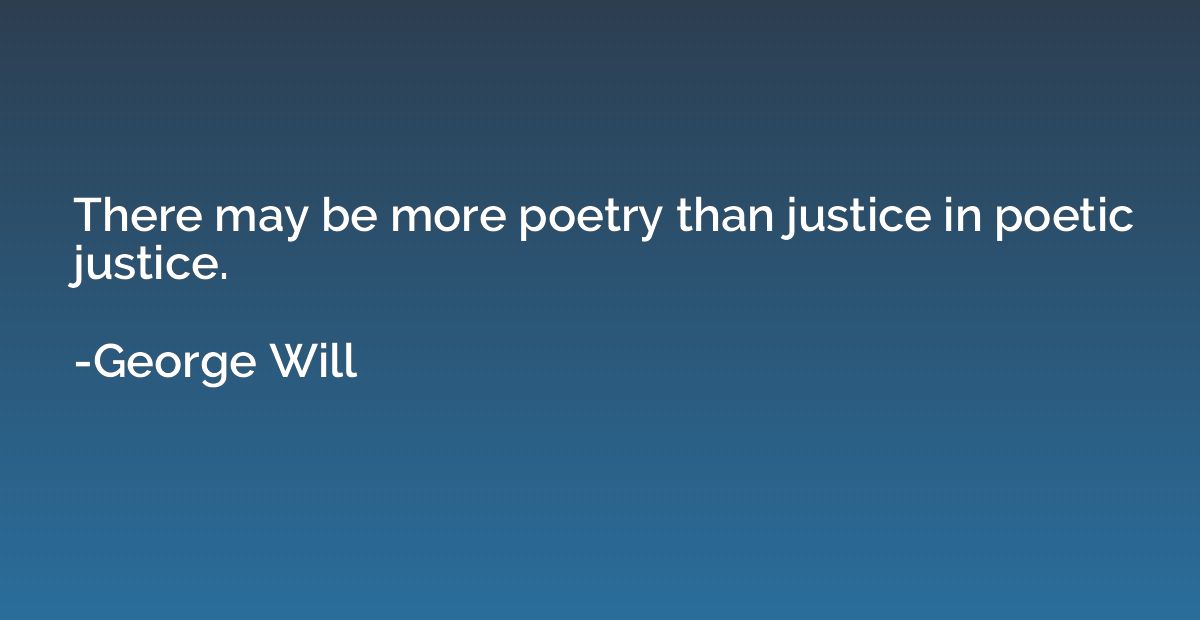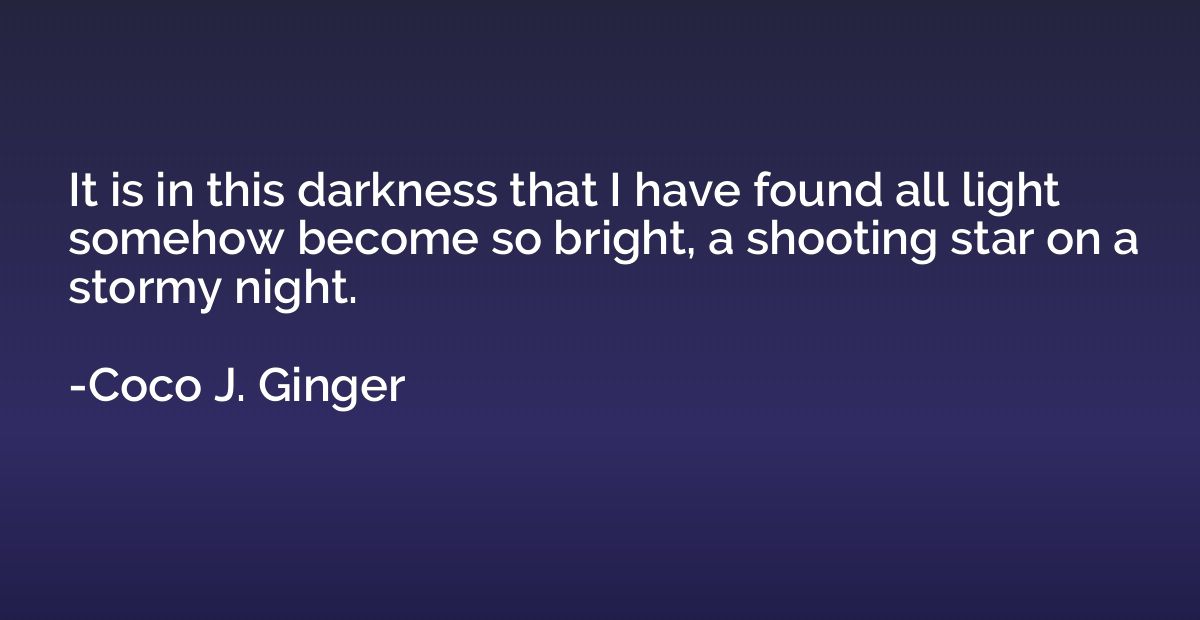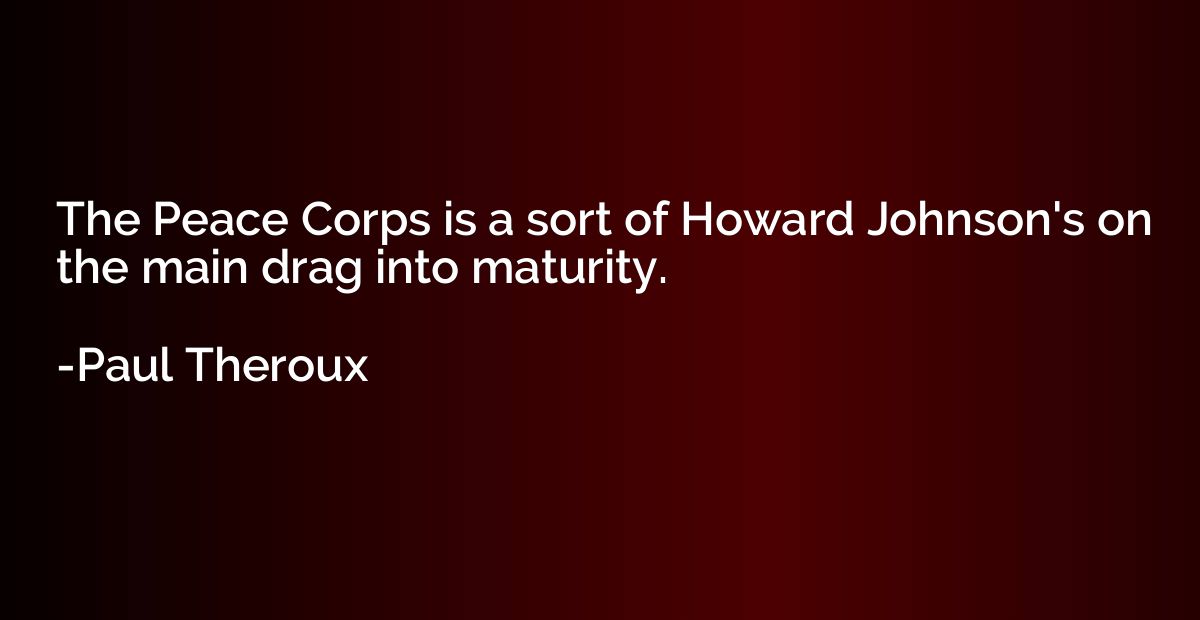Summary
This quote suggests that the concept of "poetic justice," which entails a situation where someone receives a punishment that is fitting or morally appropriate for their actions, may be more like a poetic idea rather than a realistic occurrence. It implies that while poetic justice may have an appealing aesthetic quality and seems satisfying, it may not always align with actual justice being served in the real world. Therefore, the quote hints at the potential contradiction between the beauty and artistic appeal of poetic justice and its actual manifestation in terms of fairness and righteousness.
Topics
Poetry
By George Will















